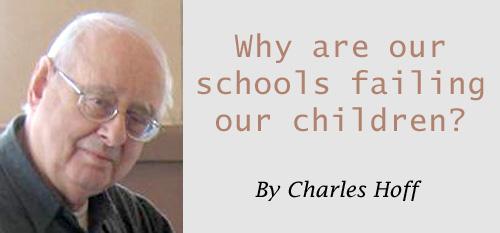AP test statistics not what they seem
Fri, 02/19/2010
This past week “US News and World Report,” a well respected weekly news magazine, brought out its list of the “Finest High Schools in the United States.” You can view this at http://www.usnews.com/highschools.
US News takes a more, in my estimation, refined look at the achievement levels of high schools in the United States that includes looking at the composition of the student body, poverty, and most importantly, the “passing rate,” not the “taking rate” of Advanced Placement or International Baccalaureate exams.
Unfortunately, as previously mentioned, there has been some “Smoke and Mirrors” in the reporting of “Achievement” by schools that will tell you about the number of AP courses offered, or the number of students “Taking AP courses.” What there is a reluctance to report is the number of kids that PASS these tests or the correlation between their report card grade and their AP, or IB, grades. They just don’t want to alarm us!
Meanwhile, by any of the common measurements, our kids in Washington, or in the Nation, continue to score lower levels of achievement and school districts cry for more money. President Obama put it very well during his campaign in a speech here in Seattle. “No amount of money will buy achievement.”
The March issue of “The Atlantic Monthly” has as its feature article “How a new jobless era will transform America” by Don Peck. Mr. Peck is a Deputy Managing Editor of the “The Atlantic.” This isn’t a “Feel Good” article as it documents a future that perhaps we might want to take some steps to avoid. In a section entitled “The Recession and America’s Youth” he makes some statements that are very similar to what readers of this column may have heard.
He cites Jean Twenge’s book, Generation Me, in suggesting that youth just haven’t been prepared for the real world. Hmm. “People who graduate from high school in the 2000’s dislike the idea of work for work’s sake, and expect jobs and career to be tailored to their interests and lifestyle.” Where did this idea come from? I would suggest that it comes from some parents and most schools where
“Accommodation” seems to be the key word. US News uses the term “Preparedness” as a final index of quality. By this they mean the percentage of kids that are “Prepared” for college. To make the “Good” list of schools, and there are 51 of these in Washington, you have to attain a preparedness index of 20%!
That’s one in five of your students has to graduate “Prepared” to attend college! Certainly not a very high hurtle, is it? Sadly there is only one high school in South King County that made this list and it isn’t in Federal Way. There were none in Pierce County!
A few more quotes from Twenge might offer some possible reasons why. “Self-esteem in children began rising sharply around 1980, and hasn’t stopped since. By 1999 according to one survey, 91% of teens described themselves as responsible, 74% as physically attractive, and 79% as very intelligent!” This group has to be attending school somewhere far from Federal Way! Twenge goes on to suggest that “Self-esteem without basis encourages laziness rather than hard work, and the ability to persevere and keep going is a much better predictor of life outcomes than self-esteem.”
Where does all of this “Feel Good” stuff come from? Bogus progress reports from school are clearly a significant part of the problem. Recently a friend of mine reported to me that his daughter was consistently reported to him as “doing well” in school by the school. When he asked for weekly progress reports, summarizing any areas in doubt they declined to offer these. End of the year he finds out that she failed the Math WASL!
Was “Self-esteem” a factor here? I think so. When we have over 600 kids taking an IB class in a school with only 36 completing the program, one might have to conclude that for “Self-esteem” reasons we have not been clear and candid with students and parents.
You may recall that Thomas Jefferson High School made “Newsweek’s” top 1500 high schools in the nation. “ Newsweek” doesn’t factor passing exams into its rankings. A few years ago a local high school made the list simply by having lots of kids take the tests. We then found out that only 7% of the kids taking the tests passed them! We did “Feel Good!”
Please check out Mr. Peck’s article in “Atlantic”, and take a look at the “ USNews’ report on high schools!
I think you will see that we need to make some changes.


